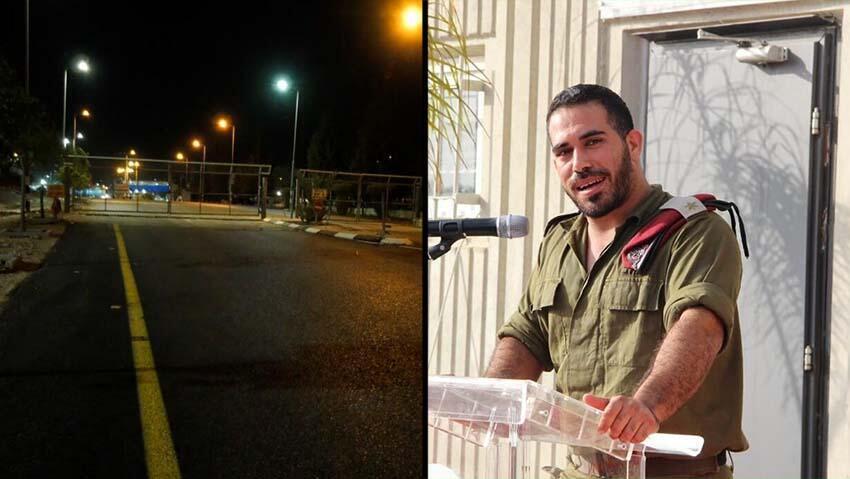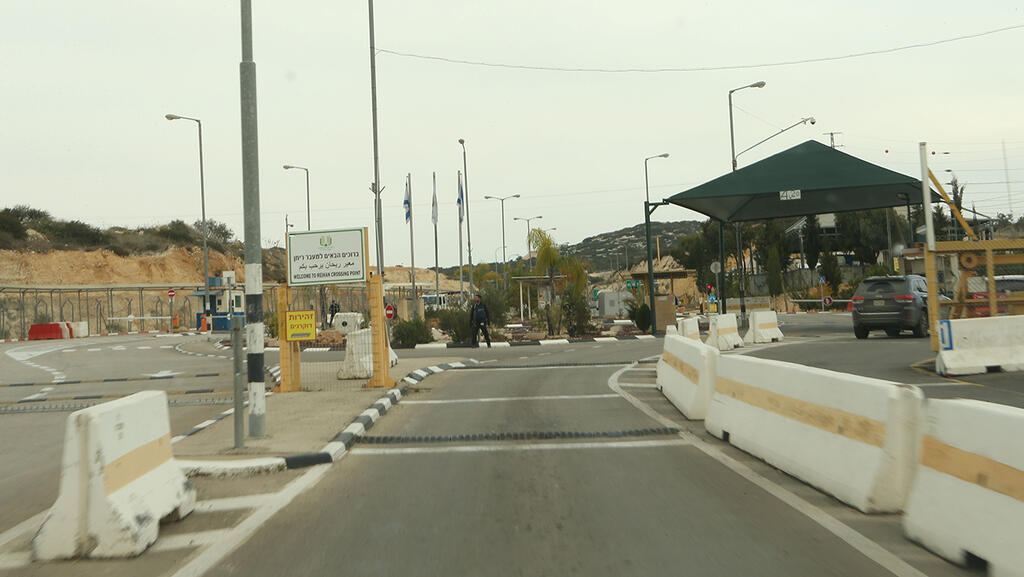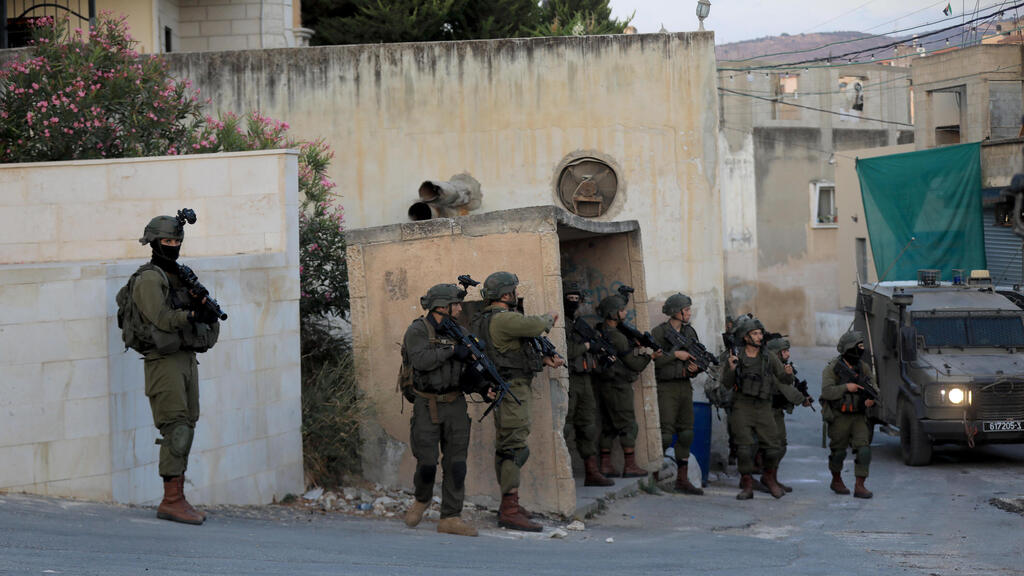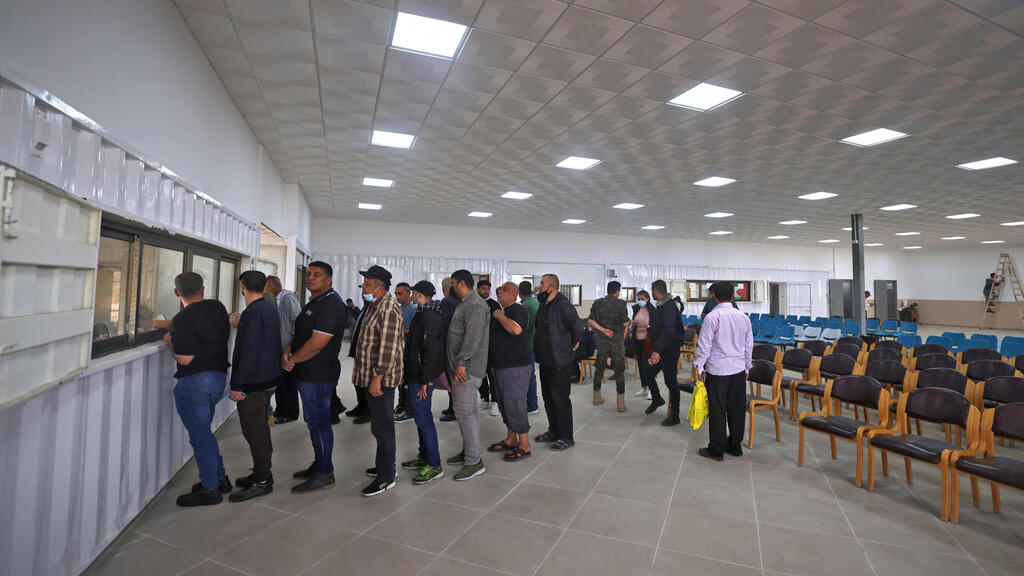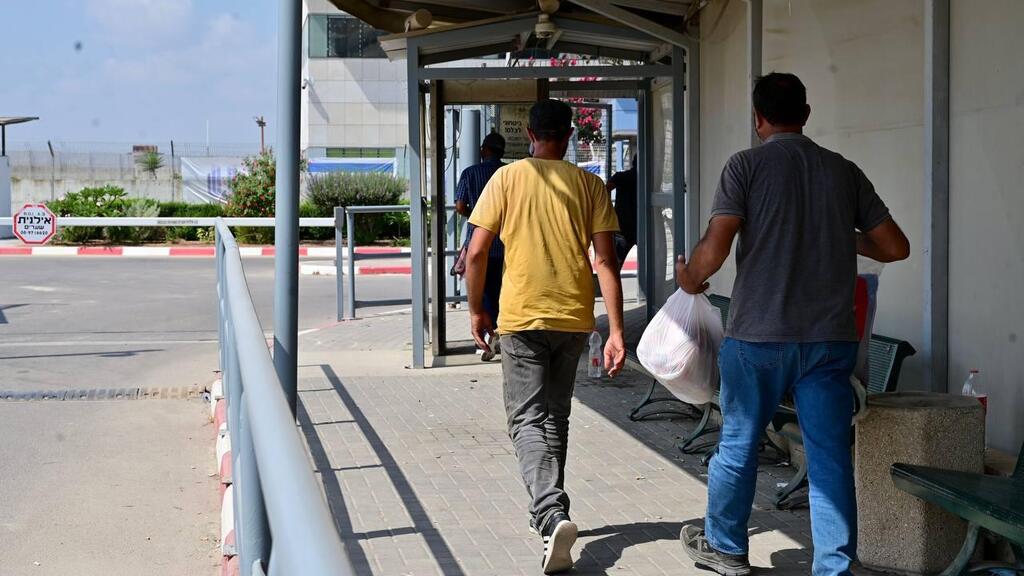Israel suspended work permits for Palestinians, in the West Bank village of Kafr Dan, where two gunmen who had clashed with the IDF on Tuesday, had lived.
An IDF officer and the two gunmen were killed in the firefight.
The decision prompted anger among Palestinians who claimed they were victims of collective punishments. It also prompted a debate on the Israeli side, as to the wisdom of the decision.
Over the past years, Israel decided to bolster Palestinian's earnings and quality of life, by issuing growing numbers of permits to work inside the country, and to evaluate its contribution to reduce terror activity.
According to a security official, the decision to revoke the work permits of the Kafr Dan residents, came after serious deliberations.
"There are somewhere between hundreds to thousands of Palestinians with permits there, and the decision is a significant blow to them," he said.
"This matter comes up after every terror attack. the Coordinator of Government Activities in the West Bank (COGAT) receives on its Facebook page, messages complaining about collective punishment," he said.
The official said the Palestinian public is anxious about every such event and concerned about the possible personal effects. "If a specific closure is made, the area immediately behaves accordingly," the official said. "On a collective level, after we decide to close the crossings to Jenin or in an overall period of security tension, many residents in the Jenin governorate that are in Israel, decide not to return home, because they are afraid they won't be able to get to work," he said.
"We see those Palestinian who's work permits get revoked when they reach the checkpoint and how they are upset," he said.
But efforts are also made to dissuade those same Palestinians and others, from joining terror actors.
Israel's goal is to create leverage so that support for terrorism will result in losses for the terrorists and their supporters, through steps that show the Palestinians that they are made to pay the price for such actions. The Israeli government prevented access to work in Israel for some 2,500 relatives of Palestinians who carried out act of terror.
Security officials see revoking permits not as a short-term solution, but rather as having long-term effects on the economy and on family income.
One official said Israel's interest is that Palestinians earn a good living in Israel, as a source of stability. "We understand this from our investigations, he said. "We want them to understand that when a local resident launches an attack, his entire family will be barred from entry for work. Just like terrorists understand that their home will be demolished," he said.
We offer an alternative to the reliance on families receiving stipends when their members die as "martyrs," he said referring to the payments made by the PA to families of terrorists imprisoned or killed.
Last May, Israel blocked the Rumana border crossing from the West Bank into Israel, for residents of Rumana, near Jenin, for about three weeks, following the terror attack in Elad.
According to the official, revoking the work permits does not happen out of the blue, and is not considered a collective punishment. "We discuss it in depth," he said. "We sit and talk about names and examine appeals," he said adding that the fact that permits have been issued, makes monitoring those workers, easier.
Every day around 112,000 Palestinians with work permits, cross into Israel for jobs, while others are permitted to enter in search of work, while thousands more, enter illegally. Some 38,000, have jobs in Jewish settlements.
Palestinians who work in Israel, earn higher wages than those who are employed inside the Palestinian Authority.
The average salary of a Palestinian worker in Israel has increased from NIS 5,000 to NIS 8,000, while in the West Bank, the average pay amounts to NIS 3,500.
This gap created a new reality in which Palestinians who work in Israel transition to higher social classes. "The Palestinian worker thinks about his future three generations ahead. He talks about buying a home for his son or funding his children's education," the security official said.
Since they are often in the position of recommending friends and family members to their employers, their friendship is often sought after. "Every worker out of the 150,000 employed Palestinians has 5-6 family members," the official said.
According to the data, Israeli employment makes up 35% of the Palestinian GDP.
The policy of employment as a tool to lower the bar of terrorism, and as a lever for creating pressure, was successfully implemented in the recent round of fighting in Gaza, last August. The officials belive this was one of the reasons Hamas did not join the fighting.
"At the end of the day, Hamas is the sovereign body in Gaza, and it needs to explain itself to its civilians and must provide an some economic horizon," the official said. "Hamas must explain why a Gazan who was making thousands of shekels in Israel, will lose his job because of missiles or terror."
The wage gaps in Gaza are even more significant than those in the West Bank. The average pay in Gaza is NIS 60 per day and unemployment figures stand at 50%. A Gazan who works in Israel, brings home a NIS 400 daily.


